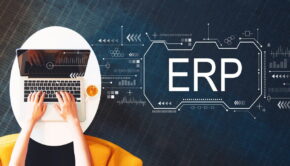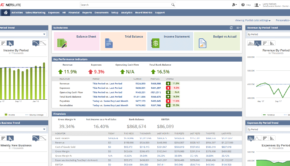How to Upgrade Your ERP Systems With Infor Services
Businesses nowadays spend a long time debating whether they should upgrade their ERP system to the latest version or not. They are often doubtful about the move because of the challenges that come with the upgrade. Together they fail to figure that the costs and disorder justify the benefits of an upgraded ERP system.
Many businesses fear losing their historical data or disrupting their business processes with a new ERP system. They are often also not sure about the financial benefits of an upgrade. Hence, it is ideal to appoint experienced leading Infor cloud solution providers like ComActivity that provide ERP solutions.

When Should You Upgrade Your ERP Software?
When Your Systems Are Outdated
Many people use an unsupported and outdated version of your ERP system till it is no good. The decision not to upgrade your ERP system might save you money in the short term. But later, you will have to take in several versions in one upgrade. Your users will have to learn various new features and understand the different interfaces. Hence, it will end up as a more time-consuming and costly transition.
While you might save some money in the short term, delaying to upgrade your ERP system can be more problematic. You will need to jump several versions in one upgrade. It means your business will have to tackle a substantial upgrade project. Your users are also likely to face several new features and a new interface at once. It will lead to a more time-consuming and costly transition.
When Your System Is Not Integration-Friendly
An ERP system that doesn’t allow integration acts as an obstacle in automatically transferring data to another computer system. It can lead to a decrease in efficiency leading to more manual work. An upgraded latest ERP version ensures integration. It makes it easy to ensure that your business systems are working in sync.
When New Updates are Released
When developers release new and the latest updates, they majorly stop supporting older versions. Hence, when a new regulation is introduced, older versions have a risk of not being supportive. It forces those with older versions to spend money to make sure they can adapt to the new update.
When and How Should You Select The Best ERP System?
Usually, businesses ignore the signs of their system failing because they want to avoid an upgrade. Whenever they decide to delay upgrading, the ERP system ends up getting slower. After several delays, when you finally decide to upgrade, the process will only be more complicated. Your vendor will not support your system. Choosing to upgrade at the right moment ensures higher productivity, deeper insights, lower risks, and efficient operations.
When deciding which ERP system to select for your business, start by evaluating how well your current system supports your business. Carefully assess what you want to plan? Why is an upgrade necessary? How well do the upgraded ERP solutions support both your current and future requirements?
Many businesses choose to go ahead with regular updates. It helps in avoiding a slow system and obtaining updated benefits. If you do not know when you should upgrade, then consult businesses like ComActivity. They can help you evaluate your situation and choose the right ERP for you.
How Much Time Does It Take To Upgrade An ERP System?
The time duration for an ERP system depends on how updated your current system is. Customization also impacts the time since they require modifying codes to enable the newer version. Decide whether the customizations are necessary. If not, they could save you from investing a lot of time and money.
ERP software upgrade is required frequently by large companies. They need a resilient, market-leading ERP system with embedded artificial intelligence, machine learning, analytics, and intelligent automation to transform processes. But whether you have a small or large company, do not avoid an upgrade.

















